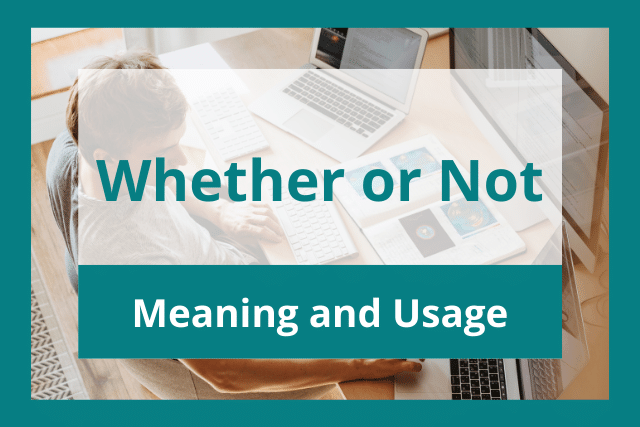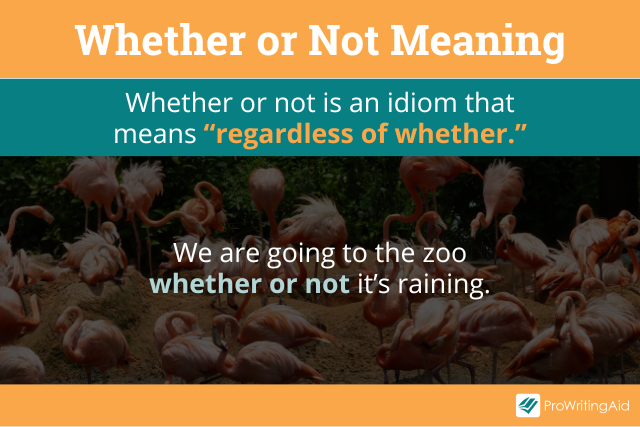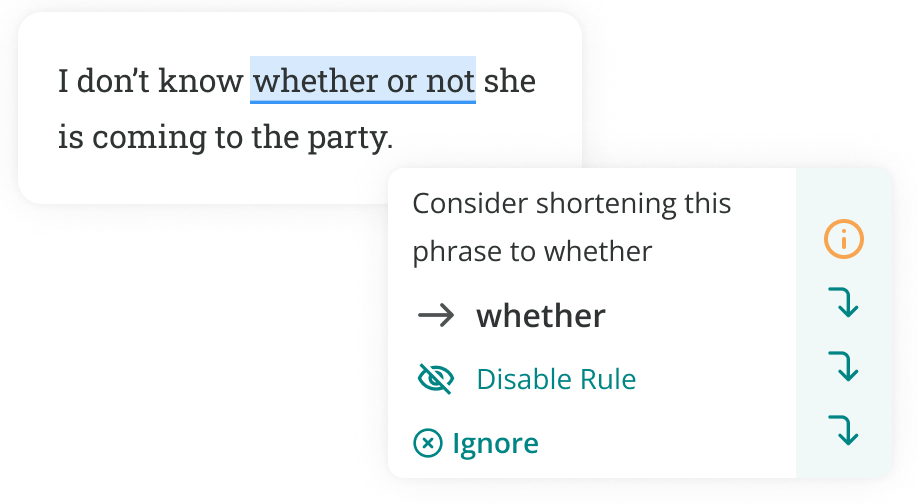
The English idiom whether or not is a commonly used expression that means “regardless of whether.” Often this idiom can be shortened to just “whether,” but it’s important to know when it’s okay to drop the extra words.
In this article, we’re exploring the meaning of whether or not and how to use it correctly.
Whether or Not Meaning
Whether or not specifically means “regardless of whether.” It presents a binary choice between two options. A synonym for whether or not is “even if.”
We use whether or not to mean something will happen regardless of whether A or B is true. Here’s an example sentence:
- We will go to the zoo whether or not it rains.
In this sentence, we can see that the speaker will go to the zoo if it rains or if it doesn’t. We could rewrite this sentence in two ways:
- We will go to the zoo regardless of whether it rains.
- We will go to the zoo even if it rains.
You can also split the phrase whether or not and place “or not” after the alternative is stated. See the example sentence below:
- We will go to the zoo whether it rains or not.
Whether or not acts as a subordinating conjunction when the subordinate clause functions as a choice between two opposite situations.
The word whether comes from an Old English word that means “which of the two.” Over time, the word evolved into our two modern phrases—whether and whether or not—that have closely related meanings but slightly different uses.

Whether vs Whether or Not: When to Use Each
Many times, we use whether or not when we could just say whether. It’s often acceptable to eliminate the negative element of the phrase to decrease wordiness and improve readability.
When whether means “if,” just use the one word. To decide which you should use, replace whether or not with “if” and “regardless of whether” and see which one makes sense.
If the sentence doesn’t make sense with “if,” you should use whether or not.
ProWritingAid is a free tool that will highlight instances of whether or not in your writing and prompt you to decide whether you’re using the phrase correctly. If you need to eliminate the negative element, you can click whether in the suggestion box.

Whether or Not Examples Used in Sentences
Let’s check out a few example sentences to see how to use whether or not.
- You must turn in the report by Monday whether or not the survey results are in.
- The bus is leaving at 9 a.m. whether or not you’re here.
- We’re having a party on Saturday whether or not he’s available.
Remember, the key to using whether or not lies in its definition. If the meaning is regardless of whether, use the entire phrase.
When you read through your writing, mentally substitute the different synonyms to see which one makes sense.


